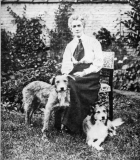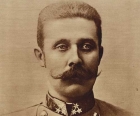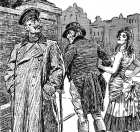Europe
From the fall of Napoleon to Revolution in Russia and from the rise of Hitler to the fall of the Berlin Wall this period is one of major upheaval in Europe. We see the collapse of monarchies and empires and the changing status of women and working men. This is a time that witnesses the mass displacement of peoples and genocide on a scale never seen before it is also a time that sees changes in medicine and technology that make fundamental changes to our everyday lives. Read more
Sort by:
Date (Newest first) | Title A-Z
Show:
All |
Articles |
Podcasts |
Multipage Articles
-

Film: Life and Death in Occupied France
ArticleClick to view -

Film: Nazi Germany
ArticleClick to view -

Film: Social & Cultural Change
ArticleClick to view -

Film: The Partitions of Poland-Lithuania (1772-1795)
ArticleClick to view -

Film: The Two German Economies
ArticleClick to view -

Film: The Weimar Republic
ArticleClick to view -

Football and British-Soviet Relations
ArticleClick to view -

Forbidden friendships: taverns, nightclubs, bottle bars and emancipation
ArticleClick to view -

Four faces of nursing and the First World War
ArticleClick to view -

Franz Ferdinand
ArticleClick to view -

From Bedfordshire to the Arctic Circle
ArticleClick to view -

From Lithuania to Lancashire: life and death in the pursuit of freedom
ArticleClick to view -

From The Holocaust To Recent Mass Murders And Refugees
ArticleClick to view -

Gary Sheffield: Origins of the First World War
ArticleClick to view -

German universities under the Nazis
ArticleClick to view -

Germany 1914-1929: Discussion
ArticleClick to view -

History Abridged: The Berlin Conference 1884–1885
ArticleClick to view -

How Sweden almost became a nuclear-armed state – and why it didn’t
ArticleClick to view -

How damaging to the Nazis was the Shetland Bus between 1940 and 1944?
ArticleClick to view -

How is the source base of the twentieth century different from that of earlier periods?
ArticleClick to view

